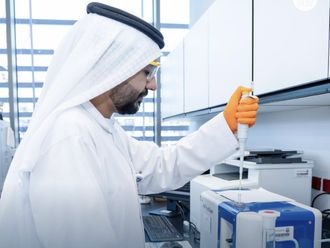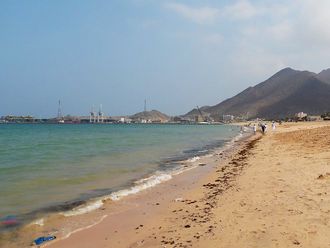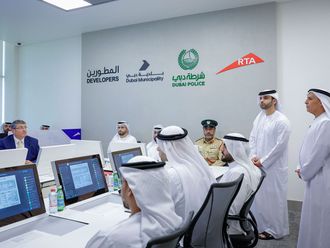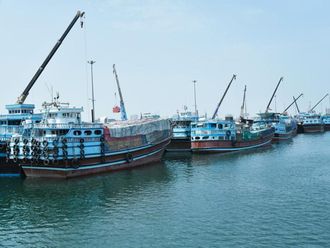Abu Dhabi: Plastic bags are too high a price to pay for shopping convenience as they are often discarded after a few minutes of use but take over 500 years to decompose in nature, an environmentalist warned on Tuesday, making a renewed appeal to avoid their use.
Joy Bruelhart, wife of Swiss ambassador Wolfgang Amadeus Bruelhart and a keen environmentalist, who's been campaigning against the use of plastic bags in the UAE, has appealed to the public to shop wisely by carrying an eco-friendly reusable bag to the store.
"Plastic bags are never biodegradable. They remain in the environment for over 500 years and more and result in the painful death of countless animals and marine life who mistake them for food", she said.
"Since these animals cannot ingest them, they fill up their stomachs and form a hardened substance, making it impossible for them to eat any other food or even drink water." Bruelhart, whose efforts have been instrumental in the introduction of recyclable bags at several establishments in the country, was speaking at an event organised by the Abu Dhabi Marine Operating Company (Adma-opco) yesterday. The event was organised under the theme ‘The Perils of Plastic Bags', to mark World Environment Day (on June 5).
"The problem of plastic bags has reached an epidemic proportion and it's high time that we acted," she said.
She brought on stage a pile of plastic bags and other materials, resembling a rock, which was ingested by a camel that led to its death in a bid to convey the significance of the issue."These animals suffer a slow and painful death," she said.
Ali Rashid Al Jarwan, Adma-opco's chief executive officer, said that the event had been organised in accordance with the UAE government's drive to replace non-biodegradable plastic bags with biodegradable carrybags by 2013, with the aim of raising awareness among employees and residents on the issue.
The event also saw two films on environment issues being screened. One showed the Adma's artificial coral reef project which was completed in 1998 and how it had helped different species of fish thrive.
The second video, by the National Geographic, showed how plastic is accumulating in the world's oceans and killing sea life.












